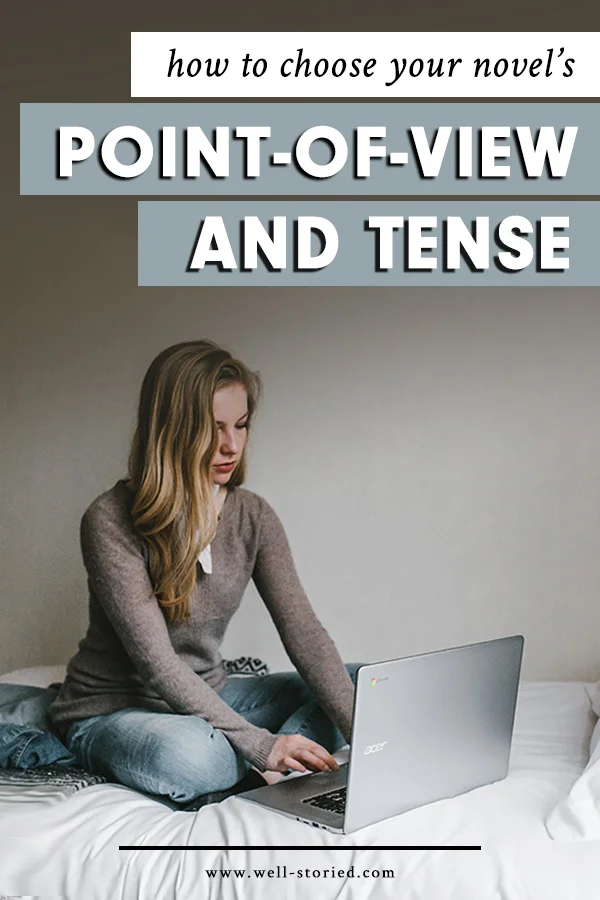Blog
Have You Created a Character or a Caricature?
No one wants to read a story about characters who feel like imitations of the people they could have been.
Characters should be well-rounded and fully-developed. In other words, they should feel as real as the people around us. This is a topic we've discussed frequently here at Well-Storied, but strong characterization is too vital to a story's success not to examine it in every way possible. And so today, I'd like to approach the character-creation process from a new angle.
So, writer, if you're ready to ditch paper-thin caricatures and half-hearted attempts at characterization, let's break down the six core questions you need to ask about your characters asap!
The Second Act: Is the Middle of Your Story Dragging?
Worried your book isn't exciting enough to maintain readers' interests?
Back in the day, I constantly struggled to write past the first few chapters of a manuscript. I knew who my protagonists were, what they wanted, and how their journeys would end, but how in the world did one fill in the gaps? I hadn't a clue, and because of that struggle, I set aside dozens of unfinished drafts, telling myself I just wasn't good enough to be a writer.
Fortunately, that all changed when I discovered the power of story structure—specifically, the 3-Act Story Structure!
The second act of this popular storytelling blueprint makes plotting the dreaded middle section of your book a breeze, or at least a heck of a lot easier than it was before. How so? Let's discuss just that in today's second installment of our three-part blog miniseries on the 3-Act Story Structure!
The First Act: Nailing Your Novel's Opening Chapters
Ready to discover the power of story structure?
Now, don't frown at me.
I know story structure doesn't sound like the most exciting thing in the world. Well, not to everyone anyway. Personally, I'm kind of a structure freak, so I AM SUPER EXCITED FOR THIS BLOG SERIES.
*ahem*
Apologies. Got a little excited there. Back to business...
Over the next four weeks, we're going to break down the 3-Act Story Structure. But first, let's talk about why structure is so important. After all, one of the biggest complaints I hear about structure is that it's too rigid, that it makes stories sound old and recycled.
But that's not the case, not if structure is used well.
How to Choose the Perfect Pen Name
Have you ever thought about publishing under a pen name?
There are many reasons why you might choose to do so. Perhaps you'd like to share your stories in secret, select a name that's more memorable or a better fit for your genre, market stories in various genres without causing confusion, or distinguish yourself from another writer or creator with a similar name.
No matter the reason, choosing a pen name that best fits your publishing needs can be tough. What factors should you consider? Is the use of a pseudonym right for you? Let's discuss in today's article, writer!
Should You Include An Epigraph in Your Novel?
Have you ever noticed the small quotations at the beginning of a book or its chapters?
Those are called epigraphs, and they can include a short quotation, saying, poem, or paragraph of prose. Including an epigraph before some or all chapters in a book isn't a necessary ingredient for baking up a brilliant story, but they can be useful for several reasons.
What do those reasons include, and should you include an epigraph (or maybe several of them) in your book? Let's dive into today's quick and dirty breakdown!
How to Title Your Novel
Choosing the perfect title for a story is tough. There's no real process to it, no formula. Or is there?
Despite being one of my most requested articles, I delayed writing this piece on titling because I never quite knew what tips to offer. The whole process seemed so subjective! But the other week I had a revelation; there's far more of a science to choosing the perfect book title than I'd suspected.
After studying book titles pretty intensively these past few weeks, I realized that whether a book is plot- or character-driven often has a big impact on how it's titled. Sounds strange, right? But the data doesn't lie, writer. So if you're struggling to choose the perfect title for your latest story, buckle in. You're going to love today's breakdown.
Should You Fast-Draft Your Novel?
Do you follow me on Facebook or Twitter?
If so, you likely saw my recents polls in which I asked if you prefer longer or shorter content on She's Novel or a combination of both. Your answer? Both!
This was super exciting for me because I've only ever done long, in-depth content here on the blog but I've been accumulating quite a few shorter post ideas I've wanted to write up. Starting with–DRUMROLL PLEASE–fast-drafting!
This topic was actually suggested to me by my friend Jenn from The Paper Scientist and I thought it was especially apt because I'm currently fast-drafting my latest WIP, The Eaves of Fall.
Breaking Down The Hero's Journey Plot Structure
Writers, it's time to discuss one of my favorite storytelling topics: plot structure.
Today, in particular, we're going to break down a structure originally outlined by mythologist Joseph Campbell in his book The Hero With a Thousand Faces. The Hero's Journey is a classic plot structure that appears in many speculative fiction books, films, television shows, and other forms of media.
Four Tips for Writing When You’re Depressed
The Tortured Artist. It's society's idyllic image: beauty wrought of struggle, of madness. There's truly no creative stereotype I loathe more. The Tortured Artist so frequently pictured in film and television teaches that the best works cannot be produced unless one is battling demons, deep in the grip of dangerous substances, or struggling under the weight of mental illness.
As a writer who does live with mental illness — depression, to be exact — I can say from experience that such struggles have in no way improved my work. On the contrary, they regularly leave me feeling further demotivated and ashamed.
However, I have learned a thing or two about living my best writing life despite struggles with mental illness, and knowing that I'm not alone, I'd like to share those things with you today.
How to Find Your Ideal Reader (and why you should get to know them ASAP)
When I first began writing, I didn't have a clue who my future readers would be.
I wrote for myself, as I believe many writers do when they first begin. But I was eighteen at the time, wafting through the grey space between teenage- and adult-hood, and every time I matured as a person, my writing matured too. As a result, my stories were ever-changing, and I struggled to maintain a hold on the narratives I was trying to tell.
This is why, when I first came across the concept of an ideal reader, my interest immediately piqued. With it, however, came a million questions. What in the world is an ideal reader? Can you be your own? How can having a clear picture of your future readers help shape your stories for the better? Writer, we're breaking it all down in today's article, so let's get started!
Three Ways to Integrate Scene Cards Into Your Writing Process
Do you prefer working with tangible notes as you write?
Admittedly, I’m not a fan of hand-writing my work in the slightest. I complete nearly all of my brainstorming, outlining, drafting, revising, and editing in Scrivener. That said, I recently had the opportunity to try out printed scene cards courtesy of my friend and fellow author Jennifer Bull, and I had a blast playing around with all of their possibilities.
How did I use the scene cards Jenn designed as I worked? Let’s discuss three ways to integrate them into your writing process today!
How to Choose Your Novel's Point-Of-View & Tense
How you choose to structure and style your story's prose can make all the difference.
Two of the biggest elements that affect your prose are, of course, point-of-view and tense. Does it really matter if you write your book in first-person or third-person? In past or present tense? In some cases, yes. In fact, point-of-view and tense are a bit like the clothes you wear each day. They may not change who you are, but they do affect others' impressions of you.
And a good first impression can make all the difference, right? So today, writers, we're going to explore the kinds of impressions point-of-view and tense can make and how you can be sure to choose the right option for your story!











